The West Bank — A Biblical Backgrounder
Stand for Israel | November 20, 2019
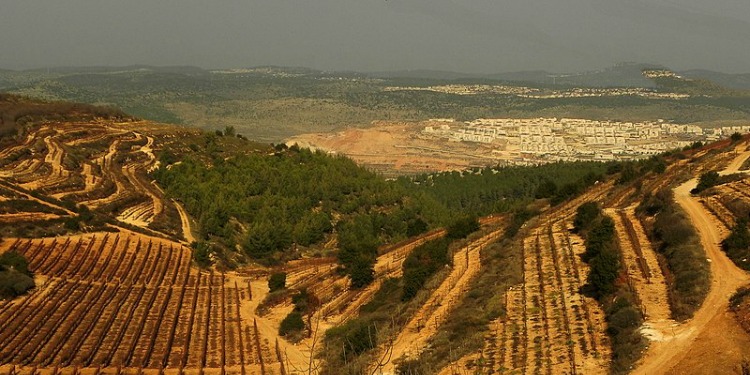
While the world debates the legality of Jewish settlements in Judea and Samaria (the West Bank), the Bible documents the millennia-old Jewish presence in this ancient land.
Most people today call it the West Bank. But the Jews who live there – as well as anyone who is familiar with the Bible – know it as Judea and Samaria.
With the U.S. decision to no longer consider Israeli settlements in the West Bank illegal, the world’s eyes are again focused on this region that is so often a source of controversy.
As the world continues to question the right of Jews to settle here, it’s worth taking a look back at the rich history of the Jewish connection to this land, which is documented so thoroughly in the Bible.
Judea and Samaria
Judea and Samaria is the heart of Israel’s biblical homeland. Today, the Jewish people have returned to this land and built cities, towns, and communities. According to Israel’s Population Registry, as of January 2018 some 435,000 Jews live in Judea and Samaria.
In the Bible

In Judea and Samaria, Abraham, Isaac, and Jacob walked the land and tended their flocks, as chronicled in the book of Genesis.
Joshua fought the Canaanites and drove them out of the land (Joshua 1-12).
For centuries, this was home to the Tabernacle and the Ark of the Covenant after the Israelites settled in Canaan, and is where the High Priest Eli and his sons officiated.
Here, Ruth married Boaz (Ruth 4).
Judea and Samaria is the birthplace of King David (1 Samuel 1:20).
God promised this land to His people:
“Then Moses climbed Mount Nebo from the plains of Moab to the top of Pisgah, across from Jericho. There the Lord showed him the whole land—from Gilead to Dan, all of Naphtali, the territory of Ephraim and Manasseh, all the land of Judah as far as the Mediterranean Sea, the Negev and the whole region from the Valley of Jericho, the City of Palms, as far as Zoar. Then the Lord said to him, ‘This is the land I promised on oath to Abraham, Isaac and Jacob when I said, ‘I will give it to your descendants’” (Deuteronomy 34: 1-4).
While some of the Jewish communities in Judea and Samaria are new, some are built on the sites of ancient Jewish cities.
Judea and Samaria is the location of Shiloh:
“But look, there is the annual festival of the Lord in Shiloh, which lies north of Bethel, east of the road that goes from Bethel to Shechem, and south of Lebonah” (Judges 21:19).
“The whole assembly of the Israelites gathered at Shiloh and set up the tent of meeting there. The country was brought under their control” (Joshua 18:1).
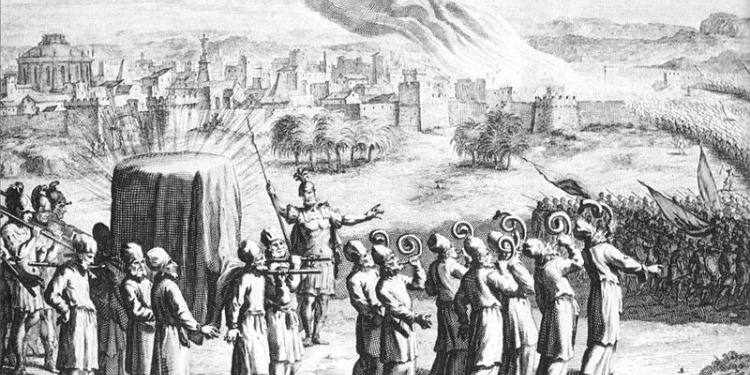
It is also the location of Jericho, where Joshua fought the Canaanites:
“Then the Lord said to Joshua, ‘See, I have delivered Jericho into your hands, along with its king and its fighting men. March around the city once with all the armed men. Do this for six days. Have seven priests carry trumpets of rams’ horns in front of the ark. On the seventh day, march around the city seven times, with the priests blowing the trumpets. When you hear them sound a long blast on the trumpets, have the whole army give a loud shout; then the wall of the city will collapse and the army will go up, everyone straight in’” (Joshua 6:2-5).
“When the trumpets sounded, the army shouted, and at the sound of the trumpet, when the men gave a loud shout, the wall collapsed; so everyone charged straight in, and they took the city” (Joshua 6:20).
It is the location of Hebron, home of the Tomb of the Patriarchs (see below).
There are key Jewish holy sites in Judea and Samaria.
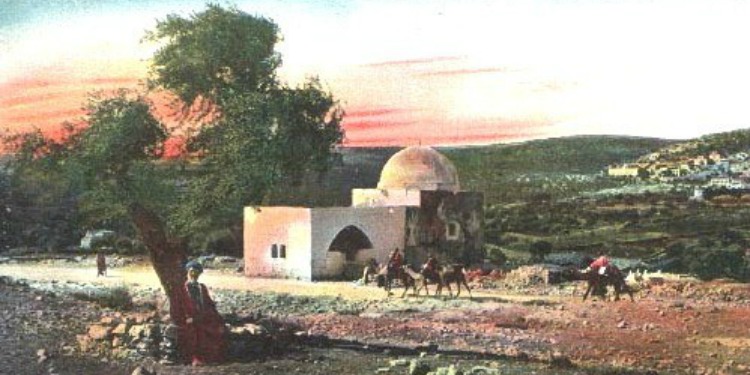
Rachel’s Tomb (near Bethlehem):
“So Rachel died and was buried on the way to Ephrath (that is, Bethlehem). Over her tomb Jacob set up a pillar, and to this day that pillar marks Rachel’s tomb” (Genesis 35: 19-20).
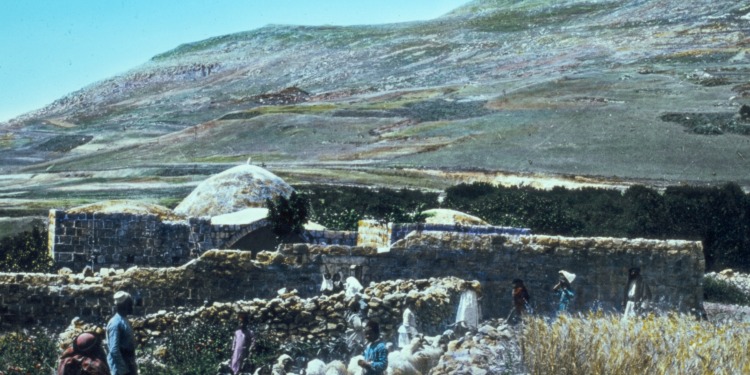
Joseph’s Tomb (near Nablus) – The Arab city of Nablus is built on the site of the biblical Jewish city of Shechem:
“Abram traveled through the land as far as the site of the great tree of Moreh at Shechem. At that time the Canaanites were in the land. The Lord appeared to Abram and said, ‘To your offspring I will give this land.’ So he built an altar there to the Lord, who had appeared to him” (Genesis 12: 6-7).
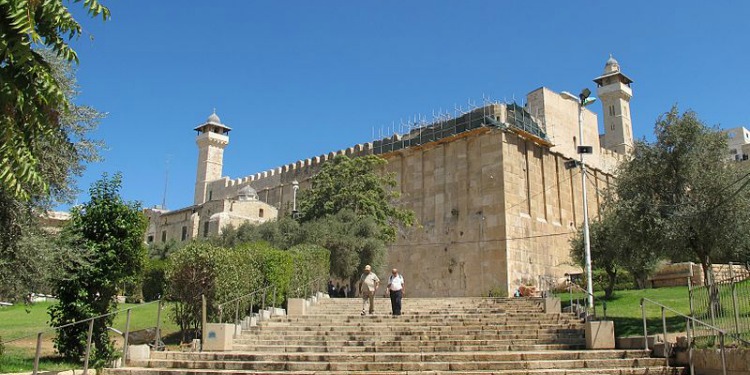
Tomb of the Patriarchs (Hebron) – Despite the fact that this is the second holiest site for the Jewish people, because of its location many restrictions are imposed on Jewish worshipers who want to make a pilgrimage here.
Death and burial of Abraham and Sarah – “Abraham lived a hundred and seventy-five years. Then Abraham breathed his last and died at a good old age, an old man and full of years; and he was gathered to his people. His sons Isaac and Ishmael buried him in the cave of Machpelah near Mamre, in the field of Ephron son of Zohar the Hittite, the field Abraham had bought from the Hittites. There Abraham was buried with his wife Sarah” (Genesis 25: 7-10).
Death and burial of Isaac – “Jacob came home to his father Isaac in Mamre, near Kiriath Arba (that is, Hebron), where Abraham and Isaac had stayed. Isaac lived a hundred and eighty years. Then he breathed his last and died and was gathered to his people, old and full of years. And his sons Esau and Jacob buried him” (Genesis 35: 27-29).
Death and burial of Jacob – “Then [Jacob] gave them these instructions: ‘I am about to be gathered to my people. Bury me with my fathers in the cave in the field of Ephron the Hittite, the cave in the field of Machpelah, near Mamre in Canaan, which Abraham bought along with the field as a burial place from Ephron the Hittite. There Abraham and his wife Sarah were buried, there Isaac and his wife Rebekah were buried, and there I buried Leah. The field and the cave in it were bought from the Hittites.’ When Jacob had finished giving instructions to his sons, he drew his feet up into the bed, breathed his last and was gathered to his people” (Genesis 49: 29-33).
Jerusalem, the Holy City
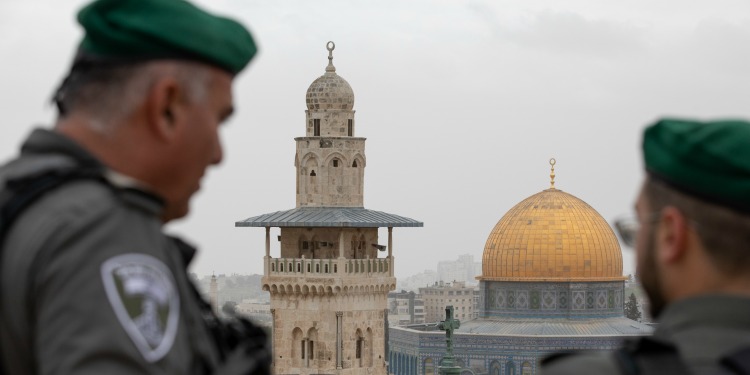
To understand the Jewish people and their faith, both from a biblical and historical perspective, one needs to begin in Jerusalem. East Jerusalem is in the West Bank – thus, Jewish homes there are considered illegal under international law.
But the Bible makes clear the millennia-old Jewish connection to Jerusalem. Jerusalem is mentioned well over 600 times by name in the Hebrew Bible, and hundreds of times by other names such as Zion (Isaiah 1:8), City of David (2 Samuel 5:9), Moriah (Genesis 22:2), and Ariel (Isaiah 29), to name a few.
The Five Books of Moses (the Torah) begin with the creation of the world, and end with the Israelites on the verge of entering the land of Israel with the ultimate goal of conquering Jerusalem and building the Temple there.
Jerusalem has been the capital of the Jewish people for over 3,000 years. No other nation has claimed Jerusalem as its capital.
In the Bible:
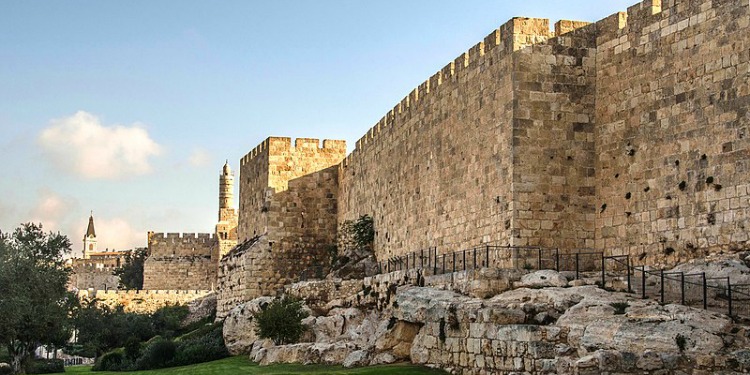
“I have posted watchmen on your walls, Jerusalem; they will never be silent day or night” (Isaiah 62:6).
“For Zion’s sake I will not keep silent, for Jerusalem’s sake I will not remain quiet” (Isaiah 62:1).
“If I forget you, Jerusalem, may my right hand forget its skill. May my tongue cling to the roof of my mouth if I do not remember you, if I do not consider Jerusalem my highest joy” (Psalm 137: 5-6).
“Judah will be inhabited forever and Jerusalem through all generations” (Joel 3:20).
“On that day I will set out to destroy all the nations that attack Jerusalem” (Zechariah 12:9).
“I rejoiced with those who said to me, ‘Let us go to the house of the Lord.’ Our feet are standing in your gates, Jerusalem” (Psalm 122: 1-2).
“But now I have chosen Jerusalem for my Name to be there, and I have chosen David to rule my people Israel” (2 Chronicles 6:6).
“Nevertheless, for David’s sake the Lord his God gave him a lamp in Jerusalem by raising up a son to succeed him and by making Jerusalem strong” (1 Kings 15:4).
